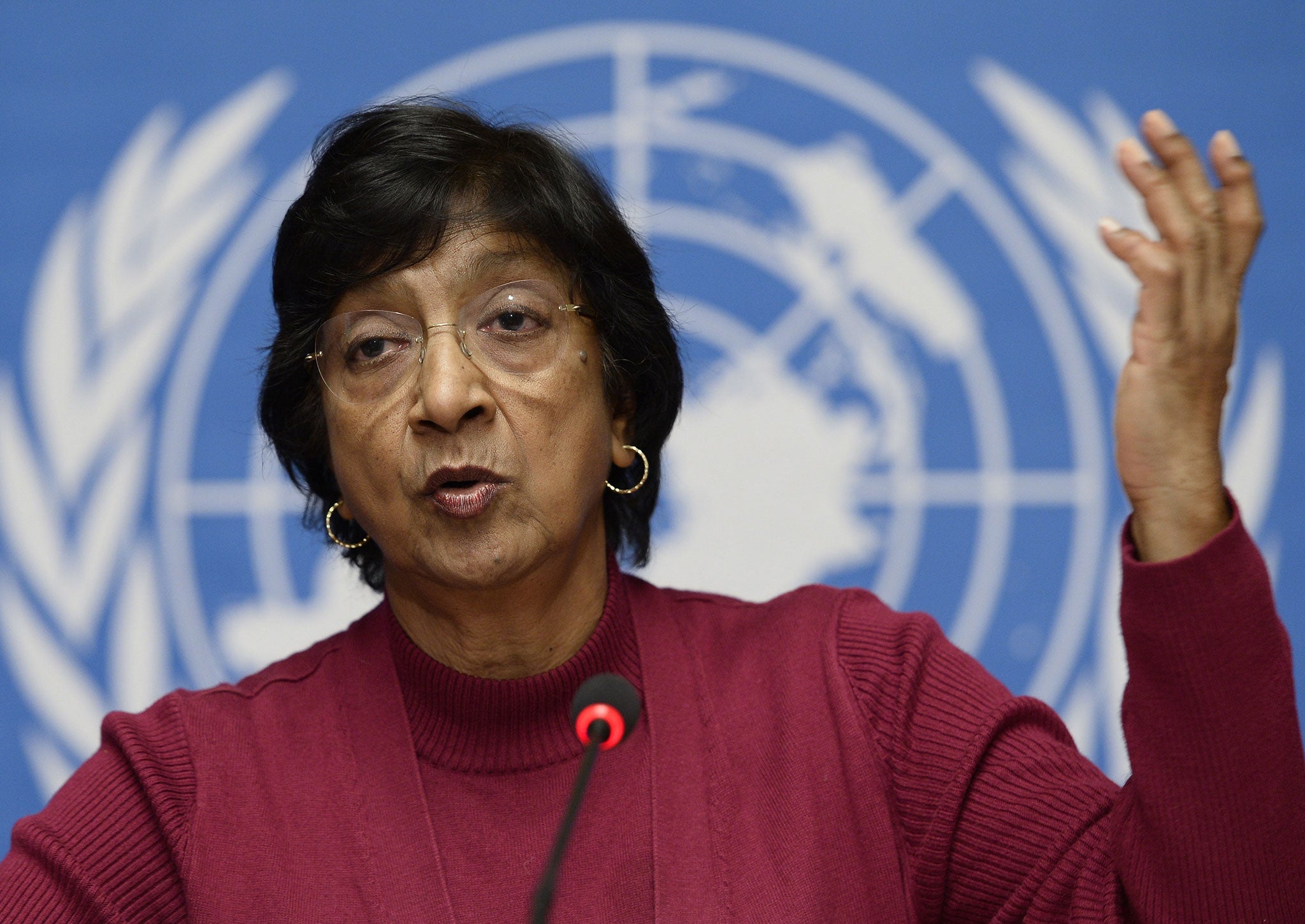Farewell to Navi Pillay, South Africa’s first non-white female judge
As well as being a world-class troublemaker, she has briefed the UN Security Council more times than all her predecessors combined


Amid the general disarray of a hideous August, here is one more reason to hang your head: Navi Pillay is retiring.
Name not mean much? Well, it should. South Africa’s first non-white female judge, after becoming the first South African woman of colour to open her own law office, Pillay has been the world’s most powerful and effective champion of human rights for the past six years.
The phrase “human rights” has no meaning for the pseudo-religious mob crucifying and decapitating its way across northern Syria and Iraq. But the fact that elsewhere even tyrants still feel the need to keep torture, unlawful detention and extra-legal killing under wraps is a measure of how Pillay and her colleagues have kept up the pressure.
On her watch, the UN’s Human Rights Council has found a new sense of purpose. When the civil war in Sri Lanka was brought to a bloody end in May 2009, Amnesty International and others were quick to highlight the dreadful price Tamil civilians had paid for the peace. But the UNHRC merely saw the upside of the war’s end, “welcoming the conclusion of hostilities” and “the liberation ... of tens of thousands of ... citizens ... as well as the efforts by the Government to ensure the safety and security of all Sri Lankans and to bring permanent peace to the country”. It parroted the Colombo government line and gave it a pat on the head.
Enter Navi Pillay. Five years on, after bitter, extended and often personal abuse by the Sri Lankan authorities, usually splashed across the front pages of Colombo’s government-controlled dailies, an exceptionally strong UN investigation into alleged abuses during the conflict is under way, in defiance of sustained efforts to derail it.
Up to 40,000 Tamil civilians are believed to have been killed as the army set about exterminating the Tigers’ brutal insurgency. And although the rebels’ two political chiefs tried to surrender, diplomats say that Defence Secretary Gotabhaya Rajapaksa, brother of the president, ordered them to be killed – as they duly were. The source for that claim was General Sarath Fonseka, the army chief who was himself vindictively court-martialed and jailed after the war’s end.
Close scrutiny of how the war ended is therefore the last thing that Sri Lanka’s ruling Rajapaksa clan wish. One of the ways they tried to discredit Navi Pillay was by trumpeting her own ethnic origins, as the daughter of a South African Tamil bus driver. She responded by calling claims that she was biased and a tool of the rebels “deeply offensive”. She is on record as calling the Tigers “a murderous organisation”, which it surely was, and the government’s repatriation of 300,000 people displaced by war as “impressive”, which is also true.
Sri Lanka has been only one of Navi Pillay’s many battlefields during her six years in office; she has briefed the UN Security Council more times than all her predecessors combined. But it is perhaps the one that has evoked most strongly her courage and determination. She has also incurred volcanic fury from both sides in the Gaza wars and been described by the Syrian ambassador to the UN as “a lunatic”. The US has never agreed to her requests to look into what she calls “the many issues that trouble us” in that country, in particular drone strikes and targeted killings, while somehow the Chinese could never find a suitable date for her to pay a visit.
She has, in other words, been a world-class troublemaker. Prince Zeid of Jordan, her successor, will find he has very large boots to fill.

Join our commenting forum
Join thought-provoking conversations, follow other Independent readers and see their replies